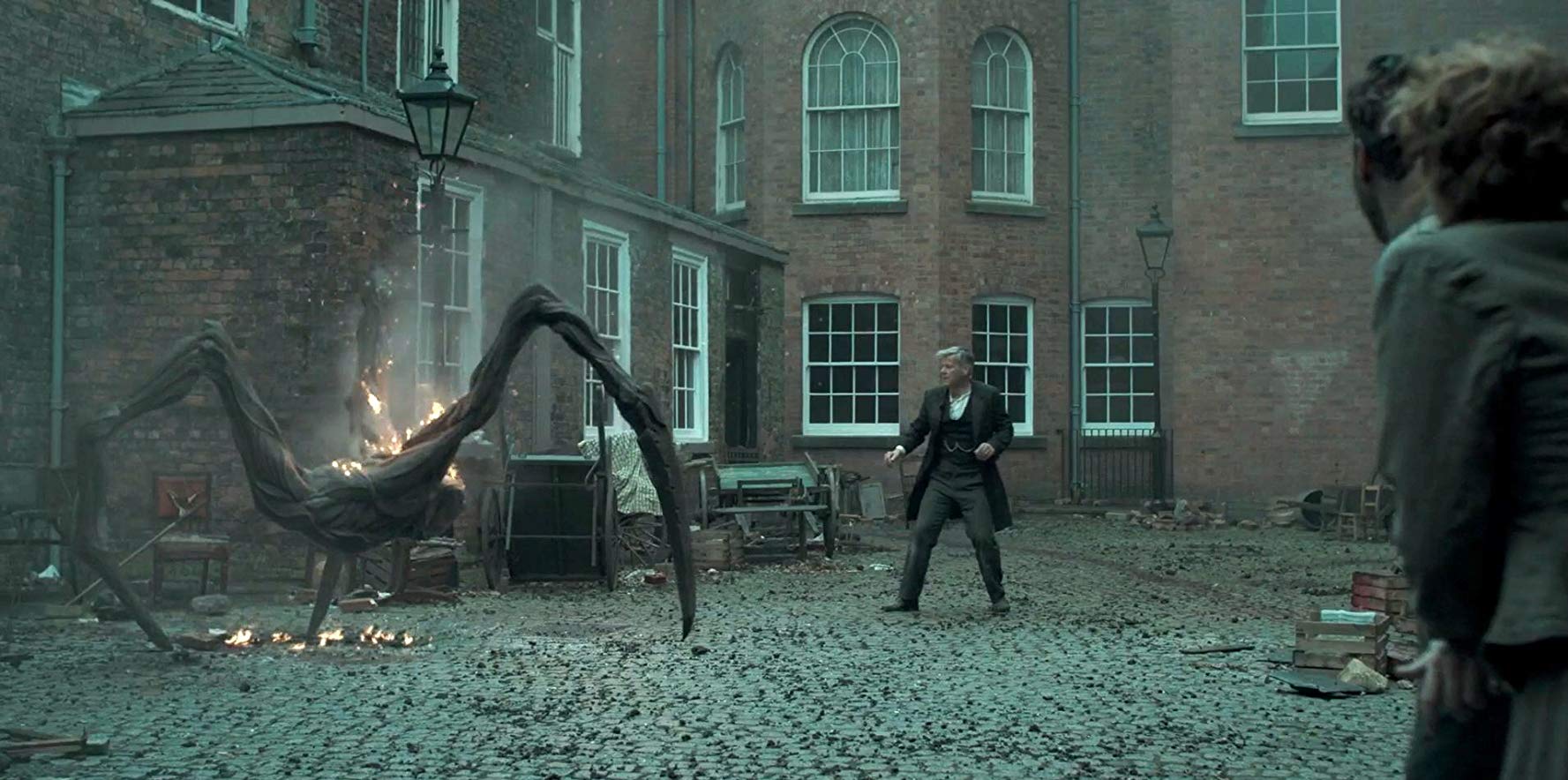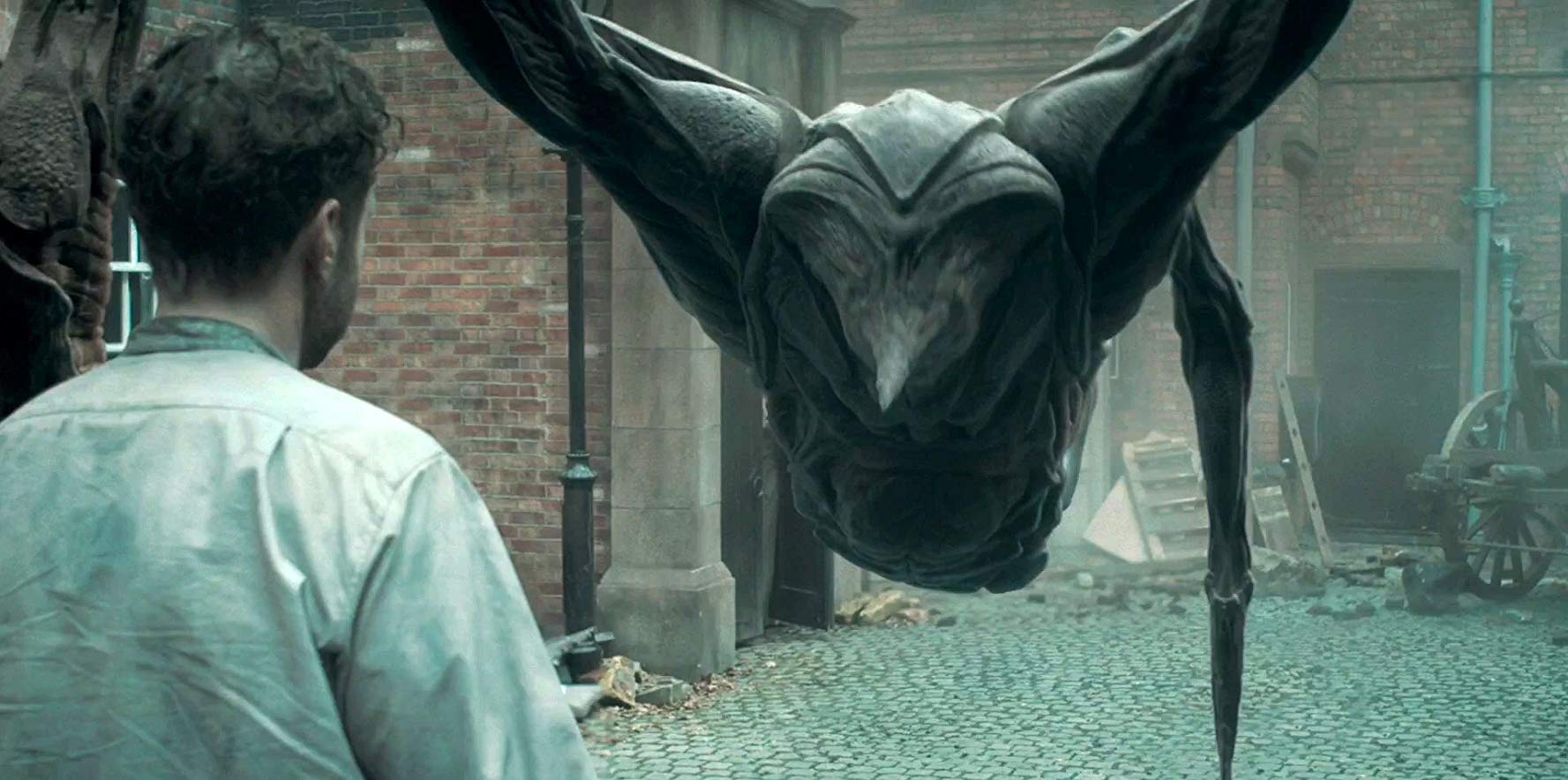
War Of The Worlds – Part 3
**** SPOILER ALERT **** The following contains plot details from the new BBC adaptation of War Of The Worlds by HG Wells.
It’s the final episode and the writers have taken more liberties than New York’s harbour. So much so that it’s more deserving of the phrase “inspired by”, rather than the more preferred “based on” that is used to describe so many adaptations. It’s not all bad, but so many key plot points from the book have been either removed or changed beyond all recognition that, in doing so, it sanitises much of the original message of the book. As an adaptation it seems as alien as the Martians themselves, made all the stranger considering how closely the first two episodes stayed to the original story. There were changes, but on the whole the story remained intact.

Ask about the key elements of the story, the bits of plot that absolutely must be kept in order to maintain the integrity of the story, and there are probably three main elements that have been excised. In any adaptation you expect to see them, regardless of the setting. The artilleryman is gone, killed at Byfleet, no longer the grand visionary of the Brave New World under the streets of London. You lose the sense of hope dashed against the rocks of one man’s futility, as the narrator realises that one man alone cannot fight against the Martians. The priest fairs somewhat better, now surviving into the apocalyptic red hued future, his role as initial sacrifice to the Martians’ feeding frenzy replaced by the typhoid ridden old woman rescued from the beaches. As an allegory for the futility of religion in adversity it’s rather lacking, the story retold as the triumph of science over theology. And thirdly we see the grand finale gone completely. Instead of deciding to sacrifice himself to the Martians, to only discover that, somehow, they had all succumbed to earthly disease, George now ends up dying in order to save Amy and his unborn child, a decision spurred on by typhoid riddled delirium. You’d think something like being stabbed to death by a Martian proboscis would be something that Amy would remember during the previous episodes. No happy ending here for George, who in the original returns home to his wife. The escape from the orphanage then becomes a massacre of George RR Martin proportions that seemingly leaves Amy the sole survivor in the whole of London. With the death toll almost complete it begs the question where all the survivors in the future came from. It’s not all doom and gloom though as we flash forward and good old human ingenuity saves the day as Ogilvy discovers how to destroy the red weed covering the planet, just in time to save George junior from imminent starvation. About the only parable from the original that remains intact is its warnings against Imperialism, the rampant Martian invasion a direct allegory for the British Empire’s disregard for the indigenous tribes conquered and treated as if somehow, they were less than human.

Amazingly the script isn’t even the biggest gripe with the episode. Instead this is levelled squarely with the lighting department who seem to have a phantom lantern that appears and disappears again depending on whether we are looking at Amy’s face, or seeing her from behind. Whenever you see her face as she hunts through the corridors of the orphanage it’s clearly lit by flickering lantern light, despite the fact she wasn’t carrying one previously. Then seconds later we see her without a lantern, her face in shadow from behind, to then again see her face lit in the warm glow of a lantern. It’s a jarring continuity error that makes the scene more comical than mood setting, more so given the previously stable and resourceful Amy’s screamed reaction to seeing a dead body through the window. Having been through far worse it seems out of character for her. The almost immediate appearance of Frederick upon Amy’s unaccustomed scream also strikes one as odd, given that they had split up several minutes earlier to search opposite directions and so should have been sufficiently far enough away to have been noticeably delayed in reaching her. It’s as if any pretence of maintaining a high standard with regards to the attention to detail normally associated with period drama has been thrown out, along with the original story.

Overall the show promised so much. A period drama of a classic Victorian novel, brought up to date with some modern story telling. Everyone knows there are going to be changes, writers and directors want to make it their own. Instead, where subtle changes could have brought the story to life, the writers have taken a sledgehammer to drive home modern points. The subtlety of Ogilvy’s sexuality, left to the viewer to decide, or ignore as they see fit, is contrasted with Amy’s in your face extra-marital affair and child to be born out of wedlock. The unnamed narrator turned into an ineffectual coward, emasculated to the point of being all but irrelevant to the story, except as a last minute human sacrifice to ensure his child’s survival. The addition of the future world, covered in clouds and red weed, seems pointless. It adds nothing to the story except to confuse the audience and seems added as a low-cost filler to replace a badly paced script. For purists it moves too far from the source material, the 1950s film being a truer adaptation, even with nuclear weapons and energy shields. For those unfamiliar with the book it may fair better, but even here the acting, and almost cruel brutality in the way the occupants of the orphanage are dispatched, leaves you wondering what the point of it all is. To all intents and purposes it’s a low budget episode of Doctor Who, but without the Tardis, or the script. Instead of a story of man’s futility against the Martians, to survive not by their own means but by the Martians’ inability to cope with something as simple as disease, it becomes simply a story of how plucky Amy survives the end of the world by letting everyone else around her die. It seems we may need to wait another century for the period adaptation that we’ve all been waiting for.


